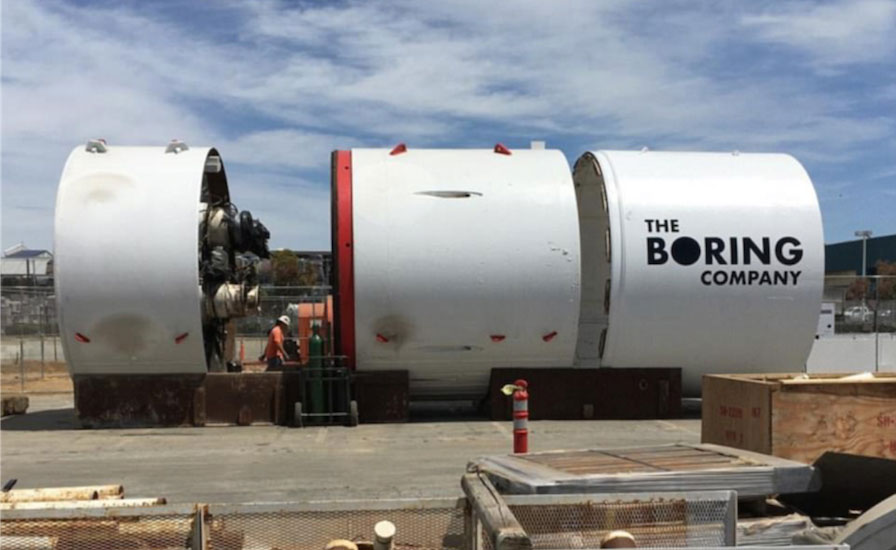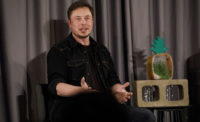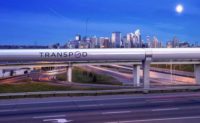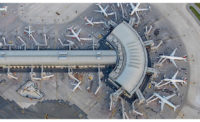Chicago Mayor Rahm Emanuel’s sudden decision not to run again has delivered a serious blow to controversial billionaire Elon Musk’s dream of revolutionizing public transportation with high-speed underground transit.
Along with the vagaries of Chicago politics, Musk also is dealing with some self-inflicted wounds that could undermine his high-speed O'Hare tunnel plan.
Emanuel’s departure robs Musk’s proposal for a high-speed tunnel to O’Hare International Airport of its strongest political backer, notes DePaul University professor and transportation expert Joseph Schwieterman.
Musk’s upstart Boring Co. beat three other teams on June 14 to win the exclusive right to negotiate a design-build-operate-maintain contract with the city of Chicago.
Musk’s proposal calls for transporting passengers at speeds of up to 150 mph through a 16-mile tunnel from downtown Chicago to O’Hare on electric, eight-wheeled “skate” cars built on a modified, Tesla Model X chassis.
The Boring Co. also recently unveiled plans for a tunnel/high-speed transit system from Los Angeles International Airport to Dodger Stadium.
There is no guarantee Emanuel’s successor will have the desire or political capital to see the complex and challenging project through, Schwieterman said.
“I think doom is too strong of a word,” DePaul’s Schwieterman said. “This ruptures or weakens the foundation for the whole initiative, which is going to require a whole lot political will.”
Still, it is also too early to draw the final curtain on the project, with Emanuel having nearly a year left in office.
“I think the mayor knows how to get things done,” Schwieterman said. “He may work aggressively to keep the (O’Hare) project on track.”
However, David Greising, president of the Better Government Association, argues it will be Chicago’s bid for Amazon’s H2Q that may become Emanuel’s focus.
The nonprofit watchdog group has sued the city-backed Chicago Infrastructure Trust for access to records related to Musk’s O’Hare tunnel proposal.
Along with the vagaries of Chicago politics, Musk also is dealing with some self-inflicted wounds that could undermine his high-speed O’Hare tunnel plan.
Appearing Sept. 6 on comedian Joe Rogan’s podcast, Musk took a drag from a tobacco/pot joint and mused about how The Boring Co. started as a “hobby company” and a bit of a joke before he decided to make it real.
Musk has also plunged his automobile business, Tesla, into controversy by tweeting his desire to take the company private and then reversing the decision. Lawsuits quickly followed, as well as news reports that portrayed Musk as suffering from overwork and frayed nerves. Some reports contained speculation about his ability to steer Tesla to profitability.
“It’s not comforting,” DePaul’s Schwieterman said.
Yet even as he faces mounting challenges, the Tesla and SpaceX entrepreneur is assembling a team of industry veterans and newcomers with which to pursue his dreams of transforming public transportation. Musk’s upstart firm beat three other teams on June 14 to win the exclusive right to negotiate a design-build-operate-maintain contract with the City of Chicago.
In April The Boring Co. hired away Mike Wongkaew from Mott MacDonald, where he worked for decade as principal engineer (structures) and tunnel design manager, according to posts on LinkedIn.
Before Mott MacDonald, Wongkaew worked for Parsons Brinckerhoff. He will be The Boring Co.'s chief tunnel engineer.
Mott MacDonald had been part of a consortium of companies that made the shortlist for the Chicago tunnel project, only to lose out to Musk. The group also included Meridiam, Antartica Capital, JLC Infrastructure, and First Transit.
Patrick O’Leary, the structures engineering designer at The Boring Co., joined last year after a short stint at Virgin Orbit.
O’Leary previously worked for 13 years at SpaceX, another Musk company. His work record in engineering stretches back to the 1970s and includes stops at Northrop Grumman, Starsys Research, and Raytheon, among others.
Michael Sagan, who was one of the first Musk executives to look at the Chicago tunnel project, is also a relatively old hand, having worked as deputy general counsel at SpaceX for nearly a decade.
Other Recent Hires
Still, not everyone on the engineering side has such an extensive resume.
The Boring Co. last fall hired Arwa Tizani, an engineer in training, from Ware Malcomb, where he did utility design and site planning for commercial businesses. His previous experience included a stint four years ago as an engineering intern for the city of Santa Ana.
The firm’s regulatory counsel, Ashley Steinberg, will play a role in obtaining needed environmental permits. Steinberg, who has been pushing for tariff exemptions from the Trump Administration for tunnel parts imported from China, graduated from Stanford University Law School in 2011. Steinberg worked as a senior associate in the international trade group of Washington, D.C., law firm of Hogan Lovells before joining The Boring Co.
And Jane Labanowski, community relations director for The Boring Co., was an undergraduate student at Harvard until 2017.
Nyree McKenzie, CEO and founder of Bidhive and director of Thought Bubble, a strategic business communications firm that works with companies bidding on major projects, said it appears Musk won the bid based on his “vision and reputation” rather than the strength of the Building Co.’s roster.
“I didn’t realize how fresh out of college these core staff here,” said Nyree McKenzie, CEO and founder of Bidhive and director of Thought Bubble, a strategic business communications firm that works with companies bidding on major projects. “The core skills and experience of the team is paramount and that should be fairly well scrutinized during the selection process.”





